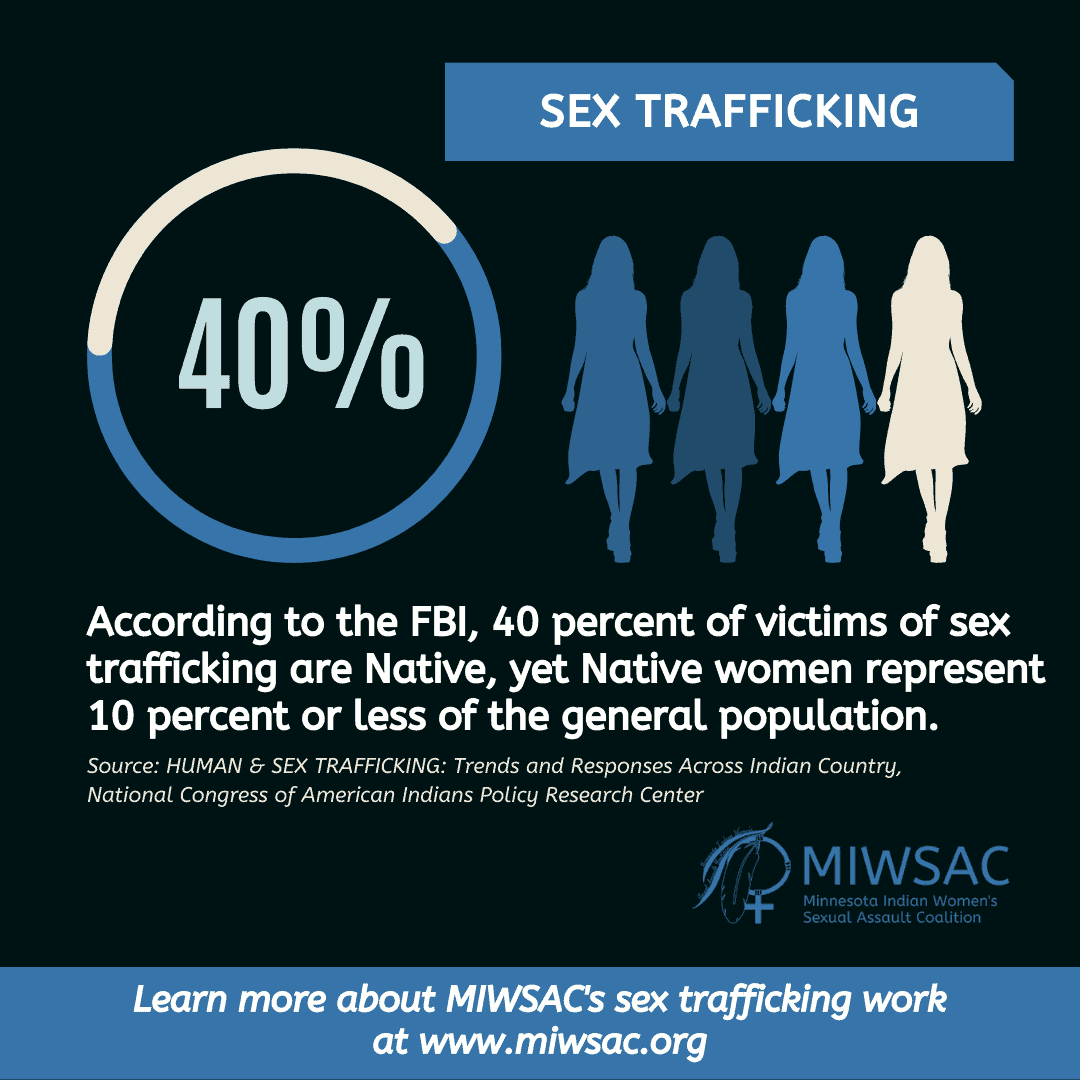Happy New Year to All!
January brings many things… timelines, opportunities, contemplation, energy, and so much more!
It also brings to us in this movement two important focuses for awareness. January is both National Human Trafficking Awareness Month and National Stalking Awareness Month. These are two other of the “major crimes” that often disproportionately impact our Native communities and intersect with sexual violence.
Human Trafficking, particularly sex trafficking, often overlaps with sexual violence. Sexual violence is used as a method of coercion or force to bring people into trafficking or to keep them in a trafficking situation. According to the Garden of Truth, a foundational study done by MIWSAC on prostitution and trafficking in Minnesota, 79% of the women interviewed had been sexually abused as children by an average of 4 perpetrators and 92% had been raped while being trafficked/ “in prostitution”. A history of sexual violence is often on lists of what makes people vulnerable to trafficking. There are many other ways that these forms of violence intersect. Yet, referencing the Garden of Truth again, only 33% of people had received sexual assault services. In the midst of the tangible, legal, and other needs, the distinct and important focus on sexual violence is deprioritized when providing support to those who have been trafficked.
Stalking is a common yet less talked about form of violence that happens to many in our communities. It is often a co-occuring form of violence, both to sexual violence and domestic violence, yet according to anecdotal information we have heard from Tribal communities and Indigenous survivors across the country, even less prosecuted. Stalking can be a red flag or precursor to sexual violence, or a form of retaliation after an assault. Communities and programs need to learn more about the issues as well as help name and de-mystify stalking, so that survivors feel more comfortable disclosing and have information needed to document or safety plan if they are being stalked. It is also important to work with systems to see how stalking can help enhance or be investigated and charged on its own for those survivors seeking justice through the criminal legal system. Learn more about stalking response considerations when working with Native communities in this resource MIWSAC worked collaboratively on.
While the focus of the National Tribal Sexual Assault Resource Center is sexual violence, our goal is to support communities in bringing education, working to prevent, and strengthening responses to all forms of intersecting violence. We also recognize that while distinct services are important, advocates and others need to be informed on all forms of violence to best support survivors. Our lives are not segmented out and the complex and compounding impacts of violence and trauma live out in each survivor in different ways (as well as the different ways people have learned to cope and heal from the violence).
We would love to work with your communities both to learn from your experiences and to increase communities’ capacity to support survivors in ways that best serve you! Contact us at [email protected] to connect.
In addition, we invite you to join MIWSAC for an upcoming conversation, hosted by our friends at NIWRC, on the intersections of sex trafficking and stalking.


